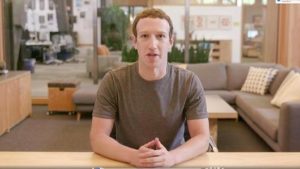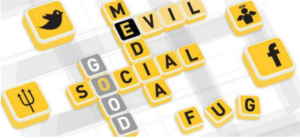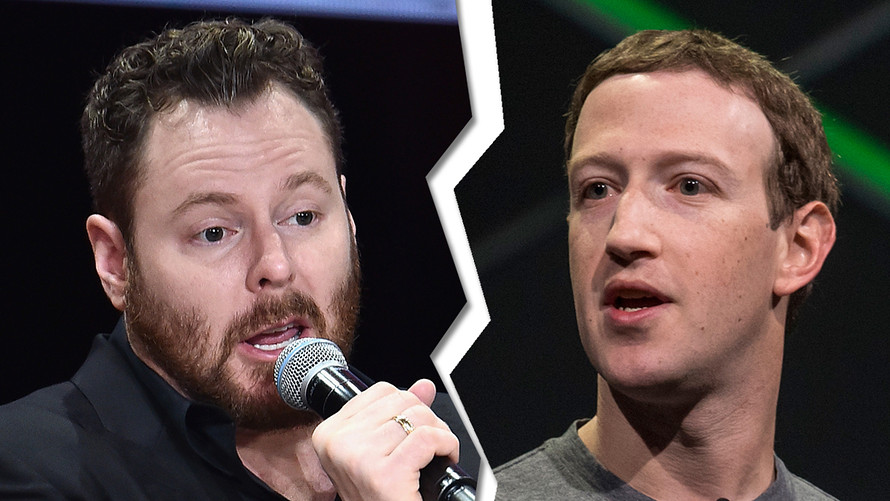So, with all due respect to Karl Marx, who needs religion when the masses have Facebook…?
 It turns out that your brain on Facebook is like an egg in a frying pan. This, in effect, is what none other than Facebook founding president Sean Parker has confessed:
It turns out that your brain on Facebook is like an egg in a frying pan. This, in effect, is what none other than Facebook founding president Sean Parker has confessed:
The unintended consequences [is that] it literally changes your relationship with society, with each other [and] God only knows what it’s doing to our children’s brains.
The thought process that went into building these applications … was all about: ‘How do we consume as much of your time and conscious attention as possible?’ …
That means that we need to sort of give you a little dopamine hit every once in a while, because someone liked or commented on a photo or a post or whatever.
(CBS News, November 9, 2017)
Except that this is rather like a drug kingpin (or the head of a big pharmaceutical company) confessing about the unintended consequences of the dopamine-triggering drugs (or opioids) they peddle.
 No doubt this is why CEO Mark Zuckerberg felt compelled to inject this “timely” observation from his presidential listening tour:
No doubt this is why CEO Mark Zuckerberg felt compelled to inject this “timely” observation from his presidential listening tour:
[Zuckerberg] said the extent of the US opioid crisis was the thing that surprised him the most during his travels throughout America this year.
‘The biggest surprise by far is the extent of opioid issues, it’s really saddening to see,’ Zuckerberg said during a live Facebook broadcast from the University of Kansas.
(CNBC, November 10, 2017)
Frankly, given Parker’s confession, this observation reeks of hypocrisy and cynicism in equal measure. And I’m not even alluding to reports that Facebook makes more money from illegal adds for opioids than it does from fake ads for Russian trolls.
In fact, you’d be forgiven for thinking this broadcast was just Zuckerberg’s Trumpian way of deflecting from the brain damage Facebook is causing by pointing the finger at opioids. Mind you, one can hardly blame him for thinking that if Russian President Vladimir Putin could use Facebook to get Trump elected president of the United States, then he could easily use it to get himself elected.
But there’s no denying Parker’s contention that social media (like Facebook and Twitter) are just as hazardous to your health as opioids (like fentanyl and heroin).
Many are commending him for speaking out. I, however, just see him as a Johnny-come-lately – given commentaries like “Why I Hate Twitter,” February 1, 2013, “Facebook Friends?! Try Facebook’s Guinea Pigs,” July 8, 2014, and “Hey Moron, Personal Tweet Is … an Oxymoron,” March 6, 2015.
For a sense of my abiding indignation, here is an excerpt from “Keep Your Selfies to Yourself…Puhleeease! April 7, 2014.
__________________
A selfie is not just about adoring one’s own reflection like Narcissus; it’s more about taking a picture of that reflection to publish for all the world to see. But am I the only one who rues the cognitive dissonance that has turned self-obsessed showoffs from laughingstocks into standard-bearers of what is now not only acceptable but required public behavior?
Nothing irritates me in this context quite like the way people convey every private sentiment — from condolences to birthday greetings and romantic love — only by tweeting or facebooking it for everyone to read. …
 I do not think social media are utterly without redeeming value. … It’s just that, all combined, [that value] probably accounts for less than 10 percent of what is posted daily. Whereas the other 90 percent seems borne of a pathetic neediness or insecurity, which causes people to make fools of themselves by posting selfies for no other reason than the vain hope of eliciting idle flattery.
I do not think social media are utterly without redeeming value. … It’s just that, all combined, [that value] probably accounts for less than 10 percent of what is posted daily. Whereas the other 90 percent seems borne of a pathetic neediness or insecurity, which causes people to make fools of themselves by posting selfies for no other reason than the vain hope of eliciting idle flattery.
Remember when there was no greater social nuisance than the Dad who showed off pictures of his newborn child (even to complete strangers) – as if it were the most beautiful thing God ever created? Well that Dad is social wallflower compared to the twit who posts selfies – as if she were the most beautiful thing God ever created.
Frankly, this culture of unbridled narcissism and oversharing has become like a metastasizing cancer that is eroding all traditional notions of personal discretion and public decency. This cannot be a good thing, especially for the self-esteem of young girls. After all, they were already suffering untenable body-dysmorphic triggers from images of models in glossy magazines. Now, thanks to photo-shopping apps, ordinary girls on social media are setting similar, unattainable standards of beauty … and fame. …
 But here’s a PSA for those of you who seem as addicted to chasing “likes” as junkies are to chasing the dragon:
But here’s a PSA for those of you who seem as addicted to chasing “likes” as junkies are to chasing the dragon:
Your friends and followers are too socially correct to tell you what an embarrassing bore your selfies – to say nothing of your banal thoughts, snarky comments, and hackneyed aphorisms – have become. You are clearly as clueless about the perennial truth that ‘familiarity breeds contempt’ as you probably are about the economic theory of ‘information asymmetry.’ And I gather ‘unfriending’ and ‘unfollowing’ are tricky propositions.
Therefore, take it from me, your friends and followers would really appreciate it if you’d spare them the annoying social obligation of having to tell you (every friggin’ day) how witty you are, or how beautiful you look. This, especially when you insist on posting selfies in which you look like a Russian babushka selling borscht who thinks she’s a VS model selling lingerie. Really, get over yourself!
__________________
Meanwhile, Parker’s confession does not even address the white elephant on Facebook’s platform. It, of course, is the pandemic of fake news; you know, of the kind that infected last year’s US presidential election, which caused so many of its brain-dead users to vote for Donald Trump.
I commented on this socio-political “black swan” in “‘Unlike’ Facebook for Facilitating Trump’s ‘Post-Truth’ Run to the White House,” November 18, 2016.
In any event, I hope at least some of Facebook’s 2 billion users have enough brains left to “Like” (and heed) Parker’s sobering admonition.
But it behooves all consumers of social media to appreciate the Orwellian nature of the anti-social behavior all networks foster, namely compelling users to continually stare down at personal digital assistants (i.e., smartphones that make so many users dumb people).
Related commentaries:
Hate Twitter…
Hey Moron…
Facebook guinea pigs…
Keep your selfies…
Unlike Facebook…
